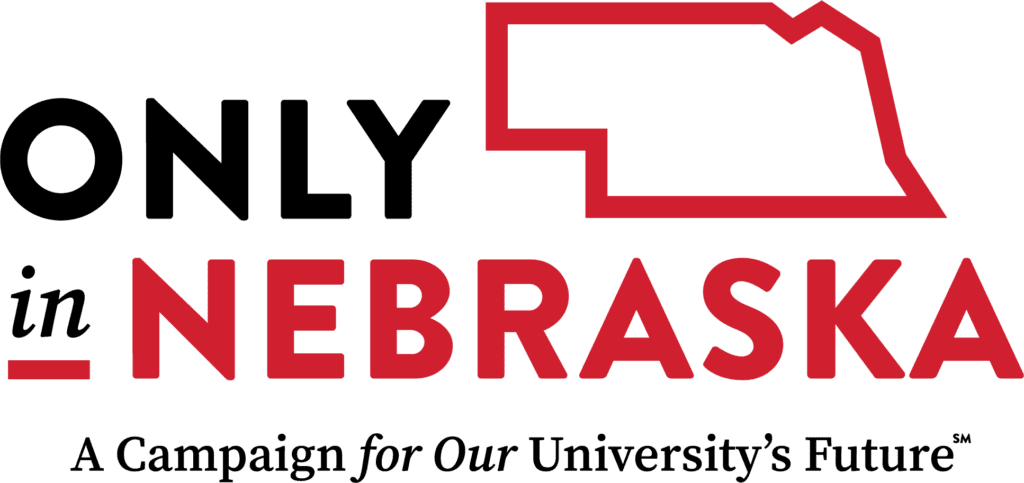You get to see a lot of gratefulness
‘You get to see a lot of gratefulness’
Future doctor thanks supporters of UNMC’s student-run health clinics
The stories that stick with him the most, he says, are the ones that he’s seen this past year — like all the times he’s seen fear in his patients’ eyes, and how he’s watched it go away.
It’s been a gift.
Jared Baxter, a second-year medical student at the University of Nebraska Medical Center, works with the award-winning UNMC SHARING clinics, the student-run community clinics that provide the underserved people of Omaha with high-quality, low-cost health care.
The clinics also involve more than 30 UNMC faculty members who volunteer onsite with the students.
This year, Jared is the clinic administrator for the SHARING organization’s RESPECT Clinic, which stands for Responsible Early STD Prevention Education and Community Testing.
“A lot of times, these patients are completely terrified,” he says. “One — that they have to tell someone else that they might have an STD or something along those lines. But two, they’re just scared for their own health. And being able to see them be completely at peace after we show them their negative test — after we are able to do this care confidentially and for free, and that they don’t have to worry about that anymore — that really sticks with you.”
The SHARING organization is unusual among student-run health care center across the country, he says, because it has several specialized clinics beyond its one general clinic. Its main clinic, called the SHARING Clinic, provides general health care. Then there’s the GOODLIFE Clinic for diabetes care, the VISION Clinic, which does eye care for diabetics as well as general vision care, and the RESPECT Clinic, all in Omaha. There’s also a branch in Lincoln with UNMC’s dental school and a primary care clinic in Kearney.
The SHARING clinics provide health care to people who otherwise may not get it, he says, whether that’s due to money or time constraints. The clinics stay open late into the evening, unlike most general clinics.
Many patients come to them with fear in their eyes and then leave with information and instruction — and the feeling that other people care.
“We really deal with populations that are left alone by society,” Jared says. “Being at the SHARING clinics, we definitely see that our patients are able to treat their health problems that would otherwise cause a lot of serious issues. They don’t have access to the health care like we do. And we’re able to see really drastic improvements in the care of, for instance, their diabetes. Or their blood sugars go way down. We can help them lose weight, help them control their blood pressure, get them annual screenings for colonoscopies or mammograms or what have you.
“And you get to see a lot of gratefulness — a lot of them really feel abandoned by society, and just having someone sit down, give them the time of day, to show they care about their concerns, is really big for them, at least as far as I can tell.”
Helping others this way will help him someday in his career, he says. It will make him a better doctor.
And, he hopes, a better human.
That passion, he says, began at home. He grew up in Omaha, the son of two generous humans — two nurses. His mom was an operating room scrub nurse and his dad was a dialysis licensed practical nurse. So the hospital, he says, became a home away from home.
His parents told him and his siblings that a big part of life is to help people who need it. His parents required him and his siblings to give a part of their allowance each week to their church or to charity.
“I guess the primary thing they’ve been a part of is trying to be nice and compassionate to people and just, you know, be a decent human being,” he says. “It’s something that’s lacking in today’s society a lot, but that’s again something we can share within the SHARING clinics to our patients.
“A lot of times those populations feel like society doesn’t care about then, doesn’t remember them, doesn’t care about what happens to them.
“Well, we do at the SHARING clinics.”
The human anatomy has always fascinated him. He learned a lot about the body’s ability to heal when he was a football player, first at Omaha North and then at a small Catholic college in Kansas called Benedictine College.
“I’ve had a lot of shoulder dislocations, unfortunately, and some knee sprains,” he says, smiling. “Nothing major, but I’ve had my fair share of bumps and bruises. I always liked knowing why things were happening and what was happening and not just, ‘Follow what the coach says and just do it.’
It was just always a natural curiosity for me.”
It’s been a gift, he says, to him and to the SHARING clinics’ other future heath care professionals.
“It really helps me practice my clinics skills and get exposed to other sides of medicine that aren’t in the textbook,” he says, “and it’s really rewarding that we get to be part of something that’s so monumental here in the Omaha community.”
Jared is sharing his story not to show how great he or the other medical students or faculty at the SHARING clinics are, but to share what he’s seen with the people who’ve supported the SHARING organization over the years are and, especially, to share how incredible the patients are. And their outcomes.
He hopes the outcome of this story will be that people who read it will think about sharing their good fortune with people like his patients.
Jared also served as the clinics’ treasurer. He knows they need money because they’re completely funded through donations. He’s met some of the donors and he’s seen — in their eyes — how much they also care.
It’s been a gift, too.
“I’m extremely grateful for all of the previous donors and future donors that we have who support the SHARING clinics,” he says. “And I know I speak on behalf of the student committee and also the faculty that represent us as well and all the providers — we’re completely grateful for your help.
“And we know that we would not be able to operate without you.”
To help future medical professionals like Jared serve the underserved, please consider supporting UNMC’s student-run SHARING clinics.





